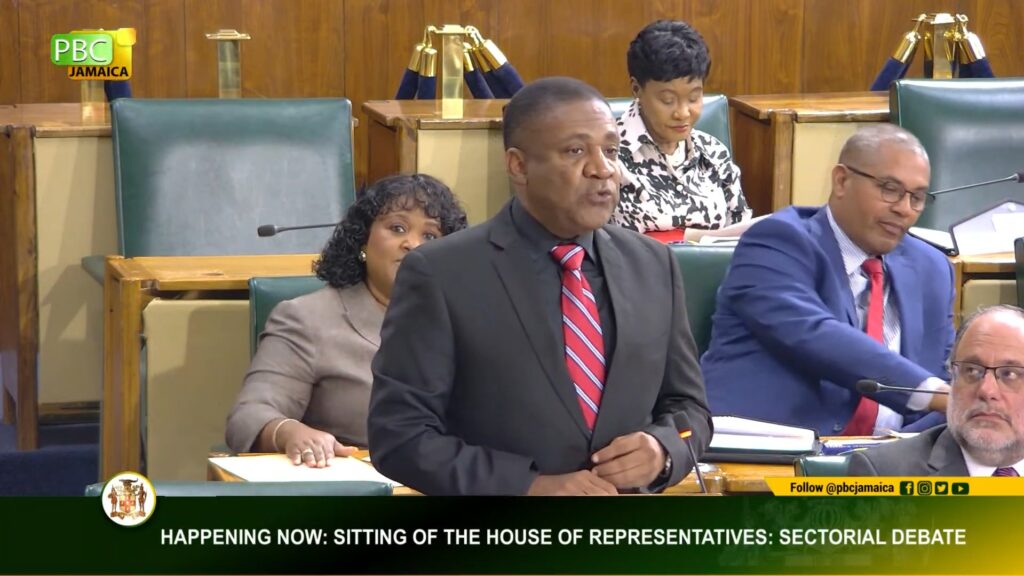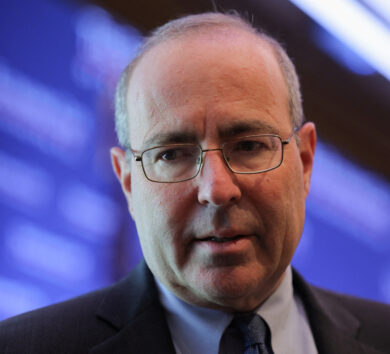

Durrant Pate/Contributor
Opposition spokesman on energy and climate change, Phillip Paulwell, is pushing for the new Jamaica Public Service (JPS) all-island electricity licence to be considerably shortened, among a slew of radical recommendations.
Making his Sectoral Debate presentation Wednesday afternoon (May 14), Paulwell lambasted the Holness administration for its approach towards negotiating the new JPS licence, a process that should have started as far back as two years ago.
While contending that the government has wasted precious time, Paulwell outlined a number of recommendations, which ought to be put on the forefront of the negotiating table.
He recommended that the government push to “abolish the right of first refusal that is accorded to JPS; all future large-scale generation projects that would add capacity to the grid must proceed by way of a transparent international tender. Allow operators and developers in special economic zones (SEZs) to generate and distribute electricity.”
Paulwell argued that full support for the implementation of wheeling arrangements must be written in the new licence as well as the addition of provisions to facilitate a revolution in rooftop solar, with special licences to include a feed-in tariff as incentives. This, Paulwell argues, is opposed to the current net billing licences.
He recommended that consumer rights measures be enhanced such as the removal of exemption-of-liability clauses in agreements with consumers and more elaborate guarantees for service.
Push for lower electricity prices
“Let me be clear about our intention: We are not here to destroy JPS! We are here to lower the price of electricity so that our people can truly progress with a lower cost of living and greater economic growth. When the economy grows, everyone benefits—including JPS and other producers,” he told the Parliament.
The shadow energy minister pointed out that currently, Jamaica’s average electricity use is shockingly low because people can’t afford to use more, citing developed societies where usage is two to three times higher than it is in Jamaica. When the price of electricity is reduced, Paulwell argued that JPS will benefit from increased usage, saying, “JPS will need to focus on adding new revenue streams such as the provision of electricity for the growing electric vehicle market, etc.”
He mentioned that during the Standing Finance Committee earlier in February, the country was reminded that by July 7, the government must inform JPS of its intentions regarding the negotiations for a new licence.
The government, he said, responded by indicating that the World Bank would be providing assistance, trumpeting that “after nine years, the only thing this government has mastered is outsourcing its homework. This is work that should have started two years ago.”

Delayed negotiations
Paulwell stated that a World Bank team was recently on the island conducting interviews, and he would have expected the World Bank to consult with the Opposition early, especially in an election year. He told the Parliament that portfolio minister Daryl Vaz indicated that the next time the World Bank team returns to Jamaica, consultation will be had with the opposition.
According to Paulwell, “the negotiation for a new JPS licence should have started two years ago and completed by now”, indicating his concern on this matter. He also raised concerns about the Energy Council, established in 2012 to address issues just like this, but it has not been convened to provide guidance.
He questioned Minister Vaz on the status of the Energy Council, asking if this government had committed to meaningful consultation with stakeholders in the sector.







Comments